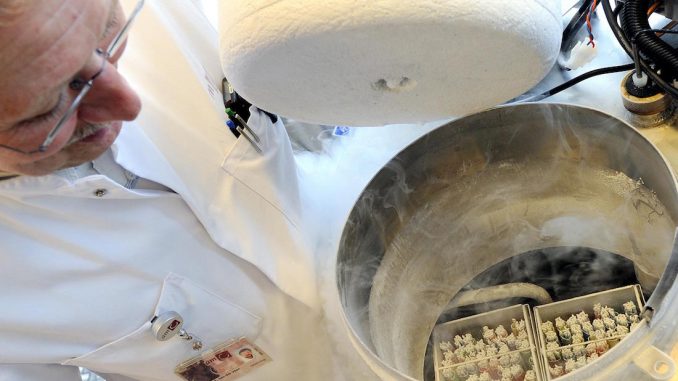
- British Fertility Society advised women who are transitioning to have their eggs preserved to give them an opportunity to be able to give birth to biological children in the future.
- Dr. James Barrett commented that with the rise of patients he treated with gender identity issues, United Kingdom’s National Health Services is yet to catch up in addressing their fertility issues.
- Gender Identity Research and Education Society revealed approximately 1 percent of the British population do not conform to gender binary, with about 0.2 percent that are likely to seek treatment.
In Independent’s transgender latest news report published last January 5, the British Fertility Society encouraged women who are about to transition to become men to have their eggs frozen in case they want to have biological children in the future.
The organization released its new guideline that included their recommendation for women who are in the midst of gender dysphoria and are about to undergo sex reassignment surgery to have their eggs preserved.
Gender dysphoria describes the distress experienced by people whose gender at birth does not coincide with their gender identity.
The guideline outlined, “For gender who are diagnosed with gender dysphoria – their gender identity does not match their physical sex – medical interventions, such as hormone treatment and surgery, may be necessary and can reduce or destroy fertility.”
It stated that by freezing their eggs, they can have a chance of being able to bear their own biological child.
“By freezing eggs, embryos, or ovarian tissue, there is still the opportunity for trans folk to have a child who is biologically related to them, through pregnancy or surrogacy,” it continued.
In addition, British Fertility Society Chair Professor Adam Balen said that infertility can influence an individual’s decision to receive treatment for a number of conditions.
“The reasons that people experience infertility are numerous. In principle, the reason for infertility should not affect the decision to consider treatment,” said Professor Balen.
He further stated, “For many people undergoing gender transition, it is the medical treatment they receive that causes infertility – we do not consider this any differently than we do infertility as a consequence of, for example, life saving cancer treatment.”
Dr. James Barrett commented that with the rise of patients he treated with gender identity issues, United Kingdom’s National Health Services (NHS) is yet to catch up in addressing their fertility issues.
Quoted in British Fertility Society website, he said, “The number of people coming forward with gender dysphoria has increased rapidly over the past decade. But the consistent provision of National Health Services funding for fertility preservation for this group has yet to catch up.”
“My clinic sees around half of the patients being referred for difficulties with gender identity in the UK and although we do discuss future fertility with them, they are not always able to self-fund for the necessary procedures and ongoing storage of material,” he continued. “Infertility is a real disease and it is hugely frustrating that the whole NHS is not always able to help our patients with that part of their lives.”
Numbers from the Gender Identity Research and Education Society revealed that approximately 1 percent of the British population do not conform to gender binary, with about 0.2 percent that are likely to seek treatment.
For transgender people who would not want to lose the prospect of having biological children at some point in their lives, having their eggs preserved is one viable alternative.
There are transgender men, however, who were able to give birth depending on their situation.
Transgender man Kaci Sullivan of Wisconsin, for example, gave birth to a child in December five years after having his first child as a woman. The baby was conceived when he temporarily stopped taking male hormones.



Be the first to comment